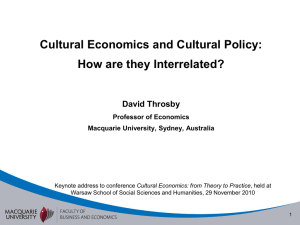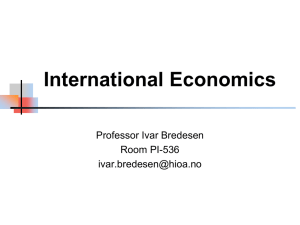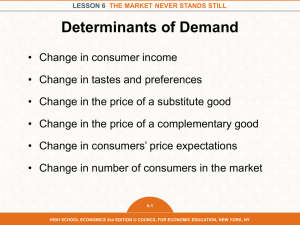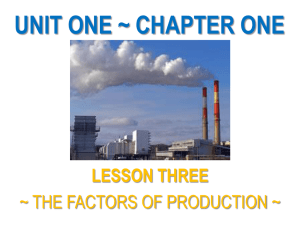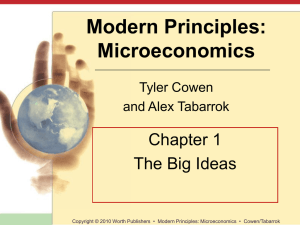Introduction to Economics
advertisement
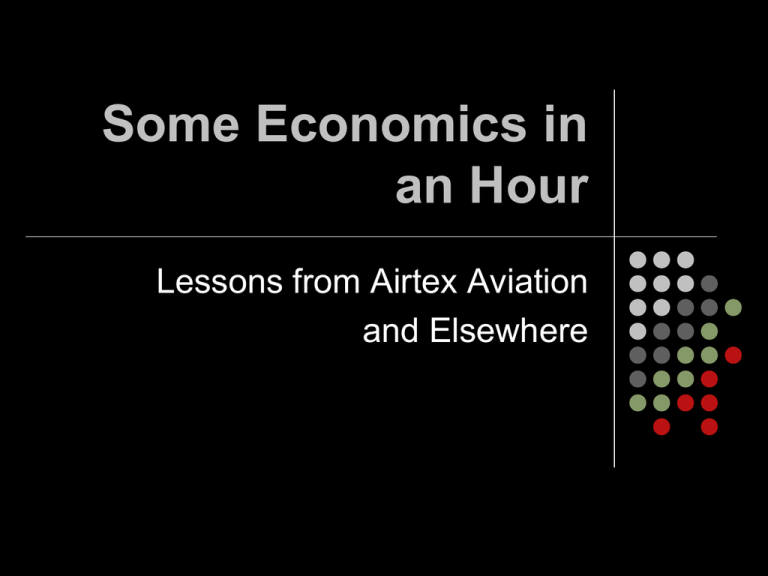
Some Economics in an Hour Lessons from Airtex Aviation and Elsewhere Introduction to Economics How do you define economics? Introduction to Economics How do you define economics? Economics studies the allocation of scarce resources to competing interests. Economics is a method of analysis and is not defined by typical subject boundaries. It is one of the broadest areas of study. Benefits of Economics Empirical—can use data to make inferences Theory—people respond to incentives Policy—helps identify and avoid unintended consequences First Observation The optimization principle: people try to do the best they can with what they have or subject to their constraints. Airtex Aviation: Questions Who are the main players in this case? How did Frank and Ted choose a firm to buy? What problems did Airtex face? What was the firms’ human capital? What were the most important changes they made? How did the change affect the business? Airtex Aviation: Summary Illustrates benefits of decentralization Main elements Turn operating activities into departments and make them profit centers Use of market mechanisms, “transfer” prices Incentives for department managers Effects Exploited specific knowledge Improved efficiency Freed Ted and Frank to manage and teach Market Solutions Market coordination decentralized Markets Allocate resources and property rights to their highest value use Make good use of specific/local knowledge Reward and punish resource owners Principles of human capital The Power and Beauty of Economics HOPE and Paying for grades Effects of HAART Pollution and unintended consequences Firearms Options on US employment data Cap and Trade Environment cupid.com




